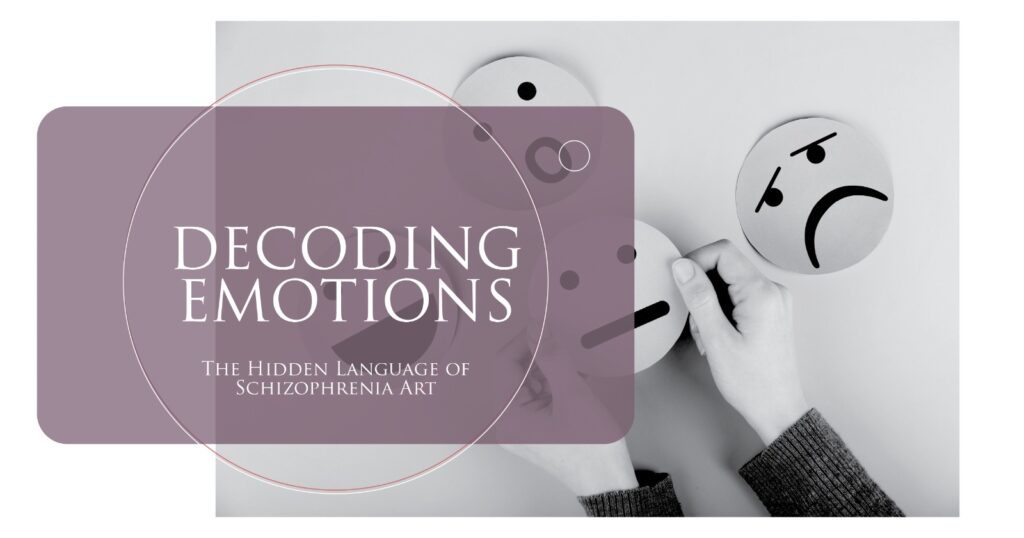Do you ever hear yourself saying to others, “I am just not good enough” or “I will never make it”? Well, many of us do this. These are negative statements that are known as self-talk. Most people will experience negative self-talk at some point in their life, but for a small few, it becomes habitual and very damaging.
Essential Takeaways
- Awareness is Key: Being aware of when this happens in one’s head is the first step out of negative self-talk. This awareness enables one to challenge destructive thoughts and replace them with more constructive ones.
- Self-Compassion is Crucial: To break the cycle of negativity, one has to practice self-compassion by treating oneself with kindness, refraining from being too hard on oneself and observing strengths rather than weaknesses.
- You Don’t Have to Do It Alone: While there are many personal strategies to take on the strife of negative self-talk, sometimes professional support is necessary. Therapy and supportive relationships can provide the tools and encouragement you need to change your mindset.
The good news is that You can break free from this unhealthy habit by first learning to recognize combat it with effective strategies. In this post, we shall discuss negative self-talk, how it affects your mental well-being, and, most importantly, how you can shift from self-criticism to self-compassion.

What Is Negative Self-Talk?
Understanding Negative Self-Talk
Negative self-talk is that inner voice that constantly belittles you. It is the chatter in our heads that strengthens inadequacy, self-doubts, and pessimism. It is normal to sometimes be rather critical of oneself, but if it becomes an automatic response in situations contrary to your life, then it’s a matter of grave concern.
Examples of Negative Self-Talk
Negative self-talk can be subtle enough that you might never even be aware of it. Here are a few examples of things people might say regularly to themselves in one tone of voice:
- “I’m just a total failure.”
- “I always screw things up.”
- “Why can’t I ever get anything right?”
- “No one will ever like me.”
These can come at the worst times when you are making a mistake, not performing to your expectations, or even when things are being really cool and just going well. They amplify your insecurities and prevent you from seeing the good in yourself.
San Jose Mental Health
The Different Types of Negative Self-Talk
Not all negative self-talk sounds the same. There are several, and each type can impact your mind and behavior differently. By getting familiar with these different forms that it takes, you may be better attuned to your inner voice and why it is holding you back.
Catastrophizing
This is negative self-talk when you assume the worst thing would happen. Even though evidence might be against it, you’re stuck imagining disaster scenarios. For example, in a situation where you’re running late to meet, you’d keep thinking, “I’m going to get fired,” even though it has happened only once.
Filtering
Filtering occurs when you focus only on the negatives in any situation and completely ignore the positives. Imagine yourself giving a presentation, with 90 percent of the feedback quite positive; you fixate on that one piece of criticism and convince yourself that the whole thing was a failure.
Personalizing
Blaming yourself for everything that goes wrong, including things you can’t control, is personalizing. For example, if a friend cancels his plans, you would say, “He did not want to spend time with me because I’m boring,” when, in fact, he may have had an alternative reason.
Black-and-White Thinking
Black-and-white thinking is the tendency to see everything in extremes of total success or an absolute failure. You may think, “If I don’t ace this project, my career is over,” rather than recognizing that you can learn from mistakes.
The Impact of Negative Self-Talk on Mental Health
Negative self-talk is not only annoying; it can be very deleterious to one’s mental health. Once these thoughts are developed into bad habits, they start to become reality, literally trapping you in this cycle of negativity. Let’s explore how negative self-talk affects mental well-being.
Increased Anxiety and Depression
This is because negative inner talk will cause the anxiety and depression feelings to be fueled. Once you always talk negatively to yourself, then you will start believing the negativities being told against you, and this leads to self-doubting and sadness downward spiral. These feelings tend to intensify and become more demanding to handle with time.
Lowered Self-Esteem
One of the biggest consequences that negative self-talk places upon the person is a drop in self-esteem. When you tell yourself, day in and day out, that you’re not good enough or not clever enough, your confidence will take a hit. One cannot just seek opportunities or attempt new things because of low self-esteem, or even relate to people.

Limiting Personal Growth
On the other hand, negative self-talk checks personal growth because it convinces you that you are incapable of improvement. Constantly telling yourself that you will fail or that you are not worth it will not make you strive and take risks out of your shell. This might result in a stagnant life where one’s capacity to reach a further point would never be reached.
Strained Relationships
Negative self-talk also affects you, negatively impacting your relationships. Since you already tend to be hard on yourself, it easily flows into other people. You can become overcritical, sensitive, or withdrawn in relationships and friendships, even at work.
How to Recognize Negative Self-Talk
First, learn to master how you moderate your self-talk so that it does not turn negative. The fact is that most people are unconscious when engaging in this type of talk. Mindfulness and personal awareness will actually help you catch the thought before it spirals out of control.
Signs of Negative Self-Talk
Here are some of the indicators that you are indulging in negative self-talk:
- You always put yourself down and lower your esteem of one’s ability.
- You take responsibility for things beyond your control and would be left to God’s will.
- You expect the worst possible scenario all the time.
- You compare your life with others, and thus you always feel that you lack something.
If any of these sound like you, you’re probably in a negative thought rut.

Common Triggers of Negative Self-Talk
In reality, some situations are easier to trigger than others. Identifying those triggers will allow you to prepare to avoid falling into the patterns of negative thinking. Some of these triggers include:
- Stressful Events. When you are stressed, it is hard not to have doubts in your head.
- Social Comparisons. Even just reading social media or comparing yourself with others can intensify evil thoughts.
- Failure or Rejection. Failure or rejection leads to statements such as “I am not good enough” and “I will never be successful.”
By finding the patterns of triggers in you, you increase your consciousness about when you tend to do negative self-talk.
San Jose Mental Health
How to Combat Negative Self-Talk
Having identified the negative self-talk in your life, you will then have to fight it with intentional strategies. Here’s how to replace those harmful thoughts with more constructive, compassionate ones.
Challenge and Reframe Negative Thoughts
Challenging negative self-talk can be an excellent way of countering it, and this process can be done in the best possible manner by refocusing those same negative thoughts into something more balanced and positive. Here’s how:
- Identify the Thought. For example, “I am not worthy enough of this promotion.”
- Challenge It. Ask yourself, “Is this true?” or “What evidence do I have to support or refute this?”
- Reframe it. Replace that negative thought with something more positive, such as “I have worked hard and have all the skills for this role.”
It takes practice, but you will eventually develop a more realistic and positive perspective.
Practice Self-Compassion
Kindness to oneself is also a very important aspect of self-fighting against negative self-talk. Self-compassion implies treating yourself with the same kindness, concern, and understanding you would accord to a good friend. Some examples of practicing self-compassion:
- Don’t Be Critical of Yourself. When things don’t go as you want them to, don’t be too judgmental.
- Acknowledge Your Strengths. Focus on your strengths and accomplishments, no matter how small.
- Practice Forgiveness. Learn to forgive yourself for past mistakes or supposed shortcomings.
Practicing self-compassion is therefore the wellspring from which self-criticism is replaced by understanding and sympathy.
Use Positive Affirmations
A positive affirmation is a simple statement that helps you overcome negative thoughts and promotes self-esteem. People can use them as part of any daily routine, which would reprogram the mind to focus on more positive, encouraging thoughts. Here are some examples:
- “I am able and powerful.”
- “I do deserve love and happiness.”
- “I can achieve the said goals through the sweat of one’s brow and hard work.”
Repeat often the affirmations you obtain to help you recall these sentiments, especially when negative thoughts occur.
Mindfulness and Meditation
Mindfulness is a strong weapon against negative self-talk because it forces you to watch your thoughts without judgment. Instead of getting stuck in one cycle of negativity, mindfulness teaches you to be aware of that inner dialogue and see it from another dimension.
- A good simple mindfulness practice is mindful breathing:
- Sit comfortably with your eyes closed.
- Concentrate on feeling the air entering and going out of your body.
- As soon as a negative thought arises, observe it without judgment, then gently bring your focus back to the breath.
This will make you realize that you are engaging in some negative self-talking patterns well before it becomes a full-blown process.
The Role of External Support
While there are many things you can do on your own to combat negative self-talk, it’s also important to recognize when to seek external support. Sometimes, negative self-talk can be so deeply ingrained that it’s challenging to manage alone.
Therapy
Negative self-talk can be best treated by therapies, especially CBT. This type of therapy guides an individual to acknowledge and challenge these negative thoughts, replacing them with more coherent and positive thought patterns. One can be guided by a therapist for the personal use of specific strategies that help deal with these destructive, negative thought patterns.
Supportive Relationships
The kind of people you surround yourself with can dramatically change your inner dialogues. Good friends and understanding family will help you counteract the negative self-talk by saying words of encouragement, basically helping to balance you out in many ways. Toxic relationships amplify negative thoughts; now is the time to take control and assess the impact that others are making on your mental state.
Final Thoughts
Negative self-talk can be overwhelming, but the point is worth repeating: bad-mouthing your own self might not last forever. Being aware of when it occurs, understanding the effects, and using the tools provided above can start the slow work of switching from self-criticism to self-compassion.
Remember, habit takes time to break, with patience and practice. Try to go easy on yourself through this process. And don’t think you have to do it alone. Fighting negative self-talk requires just that little effort and support. With effort and support, you can shift your perspective and truly form a healthier relationship with yourself.
San Jose Mental Health
FAQs
- What is negative self-talk, and why is it harmful?
Critical self-meaning thoughts represent the general subject for negative inner dialogue. It can be seriously damaging because it creates self-doubt, lessens your perception of self-esteem, and leads you to anxiety and depression. Over time, negative self-talk even binds personal growth and strains relationships.
- How can I recognize negative self-talk?
Acknowledging negative self-talk requires awareness of the frequent critical and pessimistic thoughts. The main characteristics include self-blame, living life and only considering the wrong things, catastrophizing or thinking the worst, and comparing yourself with others. Having these styles in mind is the first step toward breaking the cycle.
- Can mindfulness help reduce negative self-talk?
Yes, mindfulness can help because it makes you see your thoughts without judgment. When you’re more aware of your negative thoughts, you are likely to interrupt them before they begin. Basic mindfulness techniques such as mindful breathing and meditation could help keep your focus off that pesky inner dialogue.
- Are there any tools or techniques to combat negative self-talk?
There are many more helpful techniques, including challenging and reframing negative thoughts, self-compassion, positive affirmations, mindfulness, and meditation. For those with deeply entrenched negative thinking, Cognitive Behavioral Therapy can also be helpful.
- Should I seek professional help for negative self-talk?
Seeking professional therapy, however, can be a very helpful intervention to use in conjunction with self-help therapy, especially if you feel that negative self-talk is seriously impacting your mental health or daily life in its execution. A therapist, especially a Cognitive Behavioral Therapy (CBT) therapist, would help you learn how to identify and challenge those unhealthy thinking patterns and develop healthier ways of thinking.








